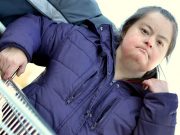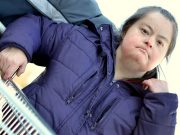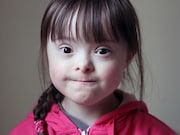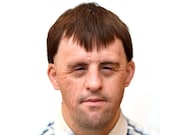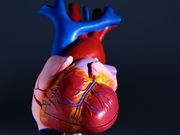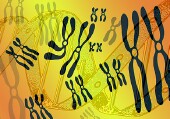Tag: Down Syndrome
COVID-19-Related Death Up for Adults With Down Syndrome
Hazard ratios for COVID-19-related death, hospitalization 10.39 and 4.94 in adjusted analyses
Guidelines Developed for Care of Adults With Down Syndrome
Strong recommendation advises screening for Alzheimer-type dementia starting at age 40 years
Dementia Common in Down Syndrome Patients Aged ≥55
Dementia incidence 102 cases per 1,000 person-years for individuals aged 55 years or older
Functional Milestones Identified for Persons With Down Syndrome
Most maintain personal hygiene by age 13, work independently by 20; 34 percent live independently
Dementia Tied to Mortality in Older Adults With Down Syndrome
Crude mortality rates for individuals with dementia were five times higher than for those without
Corneal Abnormalities Seen With Down Syndrome
More than 70 percent of patients in Down syndrome group had traits compatible with keratoconus
Majority of Women Prefer Non-Invasive Testing for Trisomy 21
Yet, roughly one-third still want an invasive secondary test plus chromosomal microarray
Decline in Complex Congenital Heart Defects in Down Syndrome
Risk in 2010 to 2012 reduced by almost 40 percent compared with 1992 to 1994
Four Methods Can Diagnose Fetal Nasal Bone Hypoplasia
Similar sensitivity for all methods for identifying fetal NB hypoplasia in second trimester
DNA-Based Blood Test More Accurate in ID of Down Sx
But it won't eliminate need for invasive diagnostics such as amniocentesis


